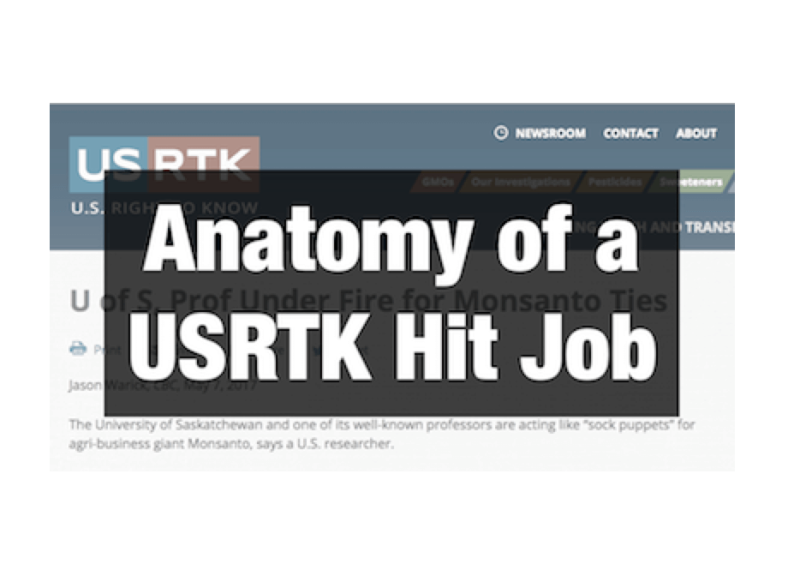[Editor’s note: Stuart Smyth is a professor in the University of Saskatchewan’s agricultural and resource economics department and holds the university’s Industry Research Chair in Agri-Food Innovation.]
Academic freedoms of biotech researchers have been attacked by an organization known as the US Right to Know (USRTK).
The USRTK is a U.S. shell organization (funded by more than $400,000 per year from the organic industry) created to attack academic research on the benefits of biotechnology and genetically modified crops. The organization works to attack, discredit and scare academics.
[Read the GLP’s profile on USRTK]
So far, more than 40 academics have been publicly accused of being corrupted by the biotech industry.
The USRTK has also demanded access to academics’ and researchers’ work emails in attempts to discredit them.
The USRTK has adopted a method used by the big tobacco companies to establish distrust in scientists.
…
Tobacco companies in the 1960s funded shell organizations to refute the research on the dangers of smoking. In addition, these organizations attempted to tarnish the reputations of the authors (scientists and academics) of this research.
Like big tobacco, USRTK (or perhaps big organic) has adopted the strategy of “killing the messenger.” By attacking academics researching the impacts and benefits of GM crops, USRTK is creating a negative environment and trying to scare the academic community to step back from future involvement on this research area.
The GLP aggregated and excerpted this blog/article to reflect the diversity of news, opinion, and analysis. Read full, original post: Anti-biotech group uses big tobacco strategy to refute GM research































